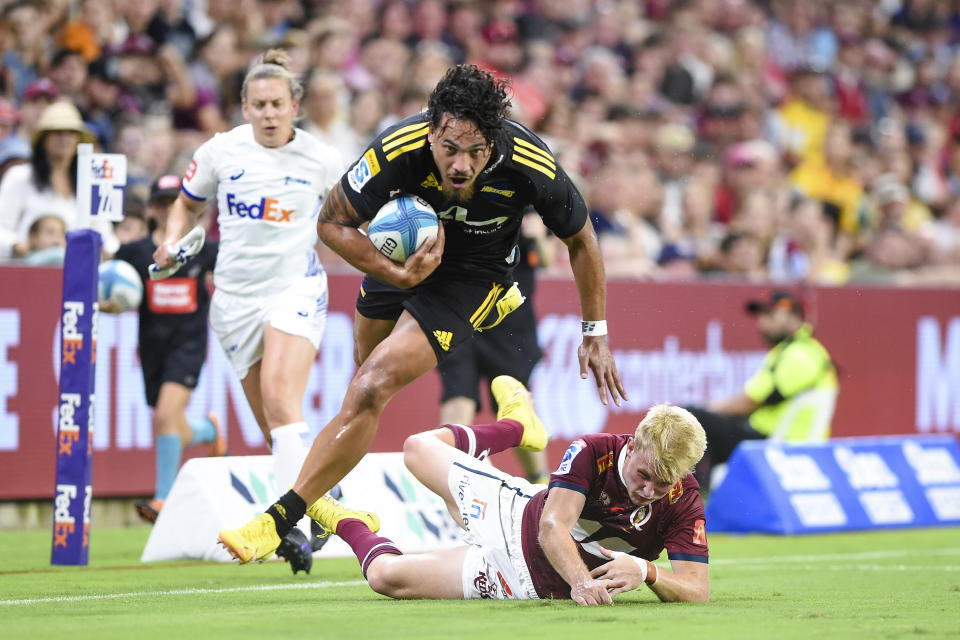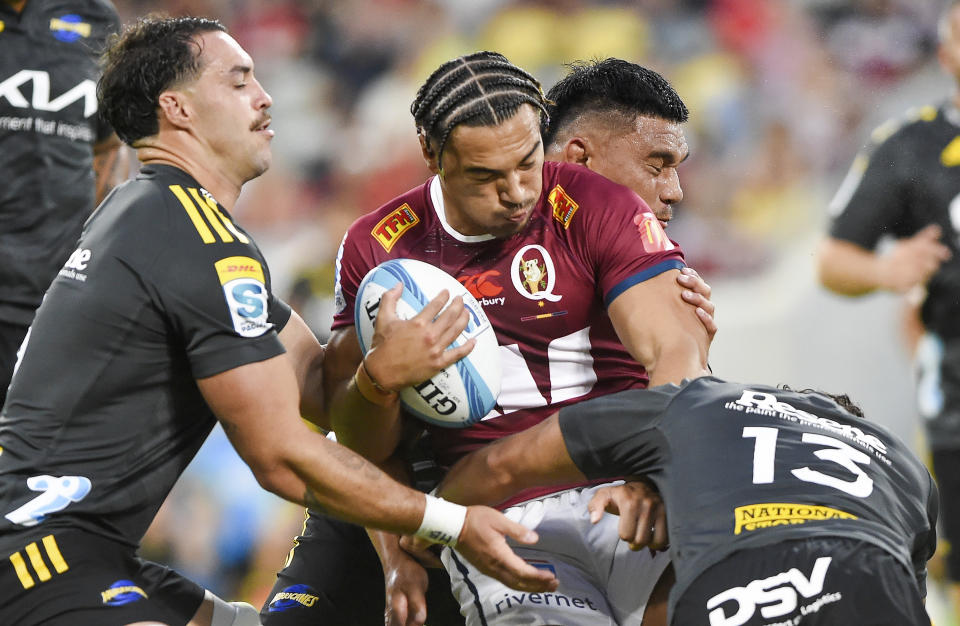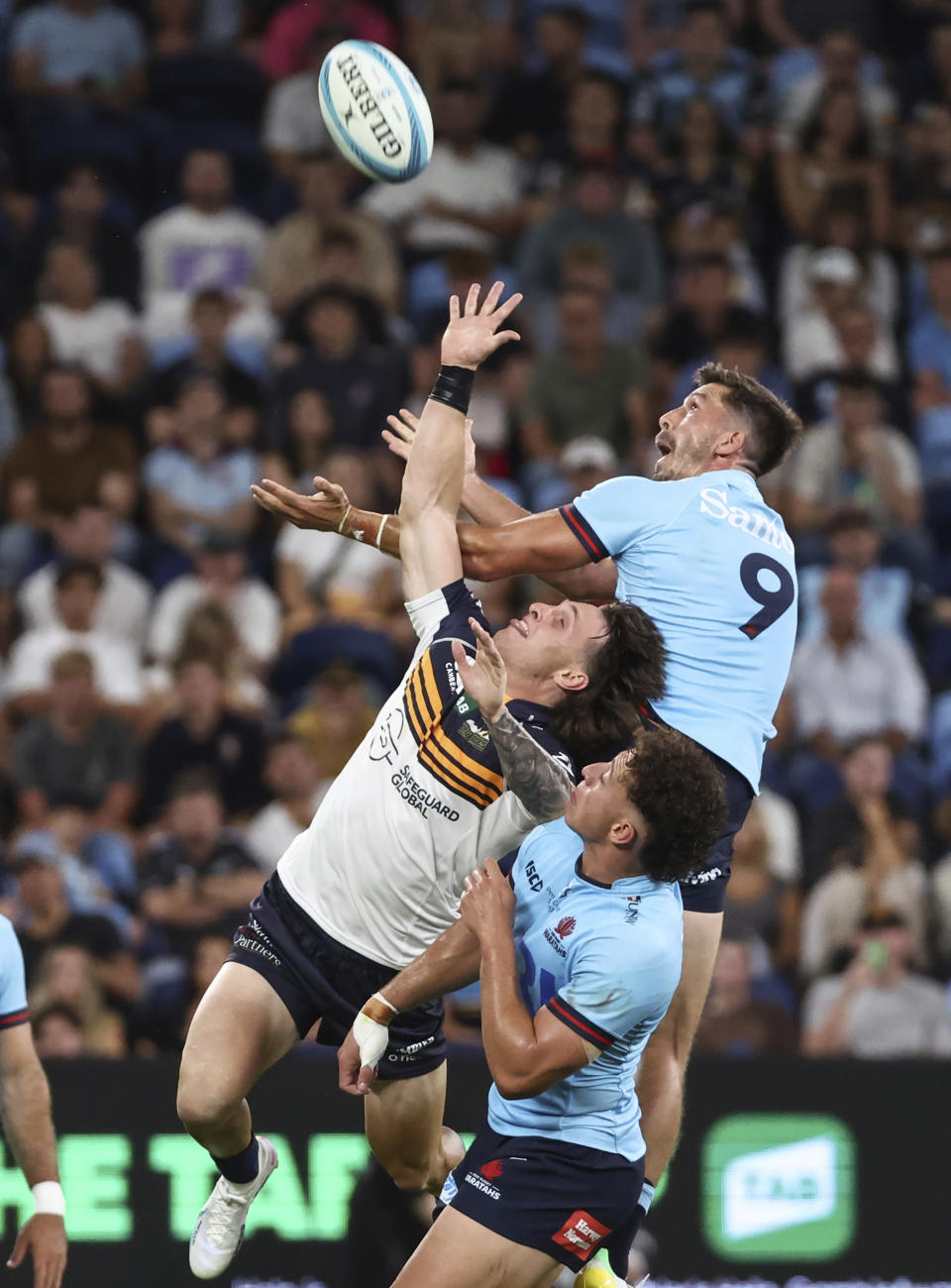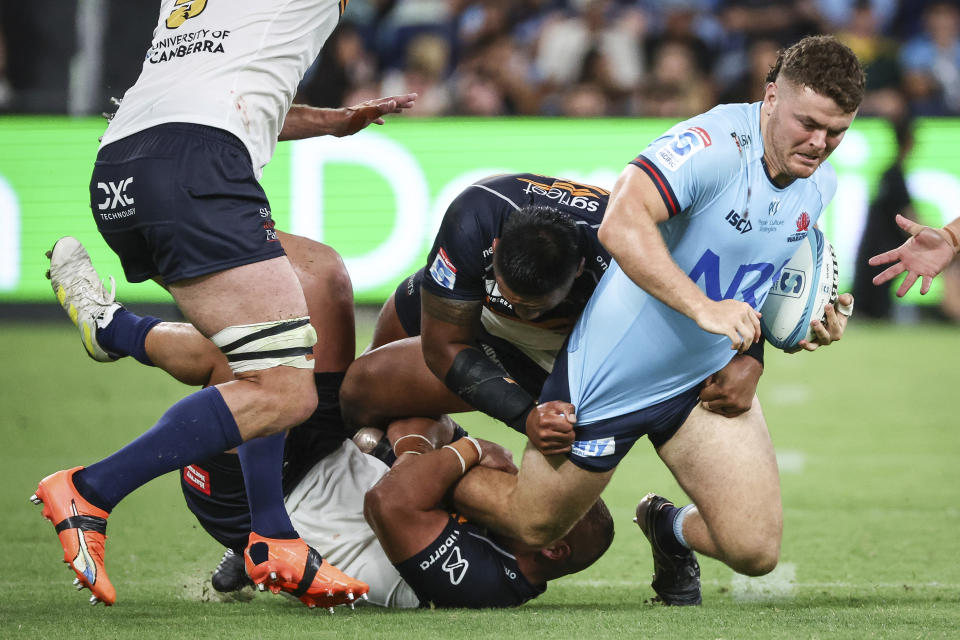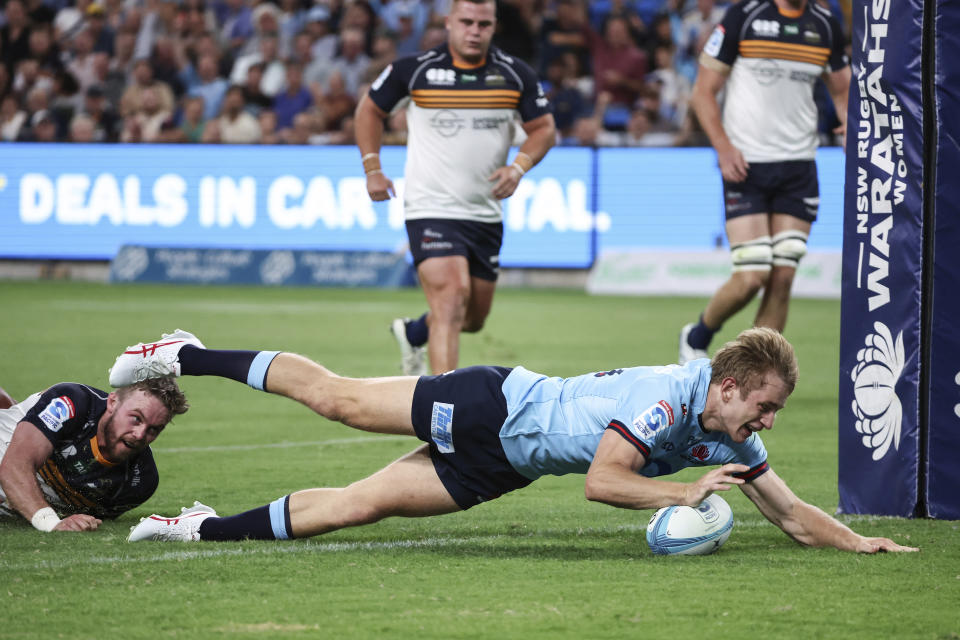Tries galore in Super Rugby Pacific opening round
- Oops!Something went wrong.Please try again later.
WELLINGTON, New Zealand (AP) — Law changes designed to speed up matches in Super Rugby Pacific appear at first glance to have been successful. Matches in the tournament’s first weekend generally were fast-paced and high-scoring.
There were an average of 7.6 tries per game, a small increase on the average of 6.8 tries per match over the whole of the 2022 season. The average score of winning teams was 39 points and the average total of points per match was 61.
Most matches were competitive with an average margin between teams of 18 but that is made larger by two blowouts: the Blues’ 60-20 win over the Highlanders and the Hurricanes’ 47-13 win over the Queensland Reds.
The decision to apply a “shot clock” to set pieces and goal kicks and to require the ball to be used at rucks within five seconds of being presented did appear to hurry proceedings.
In some matches play at times seemed to take on a frantic tone: the six minutes played after the fulltime siren in the match between the Auckland-based Blues and Dunedin-based Highlanders was harum-scarum as both sides tried to take advantage of late attacking chances.
The largest upset of the round came in the opening game when the Hamilton-based Chiefs beat defending champions the Crusaders 31-10 on the Crusaders home ground in Christchurch.
The Chiefs are a team that seems to thrive in a fast and unstructured game, so the accelerated pace of the game on Friday suited them more than the Crusaders who weren’t able to keep control after scoring the opening try.
The Crusaders were forced to make more than 200 tackles as the Chiefs gained more and more possession. The Chiefs also beat 46 defenders in an almost unprecedented failure of the Crusaders’ defense.
“We played some decent footy at the start. Then momentum went their way and we just couldn’t get back going again,” Crusaders coach Scott Robertson said. “It is a mystery. We actually trained really well this week and had a really good mindset coming in.
“They won a lot of kick battles. We made a lot of tackles. Our discipline started to go a bit and we were just on the back foot.”
In Australia, the New South Wales Waratahs’ 31-25 loss to the ACT Brumbies was a surprise because the Waratahs had been so bullish in the pre-season. They returned for the first time in five years to Sydney’s Allianz Stadium and felt that homecoming would not only boost crowds but lift their performance.
More than 25,000 turned up — the largest crowd of the first round — and saw the Brumbies beat the Waratahs for the ninth-straight time.
The turning point might have come early, in the 20th minute when Waratahs and Wallabies prop Angus Bell limped from the field with a serious foot injury. The Waratahs seemed to have an edge up front until Bell departed.
Waratahs coach Darren Coleman hoped an early prognosis that Bell may have to spend a long time on the sidelines was mistaken.
“We are holding out a bit of hope; he’s getting scans,” he said. “But he felt very similar to when he did it in the England test. It is horrible news.”
In terms of statement performances, none was louder than the Blues 40-point victory over the Highlanders.
The Blues scored eight tries and many were made possible by the strong running of Mark Telea on the left wing.
The Wellington-based Hurricanes beat the Queensland Reds 47-13 in the only trans-Tasman match of the first round but it may be too early to conclude New Zealand teams will dominate Australian teams again this year.
The Hurricanes led by only three points at 16-13 after a competitive first half and their second half scoring owed a lot to the Reds’ indiscipline.
In other matches, the Fiji Drua scored the 11th try of a thrilling match to edge Moana Pasifika 36-24 and former All Black Jeremy Thrush came out of retirement at 37 to help the Western Force beat the Melbourne Rebels 34-27.
___
More AP rugby: https://apnews.com/hub/rugby and https://twitter.com/AP_Sports
